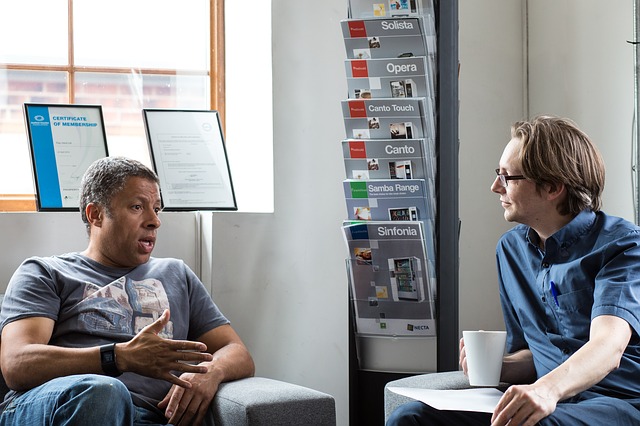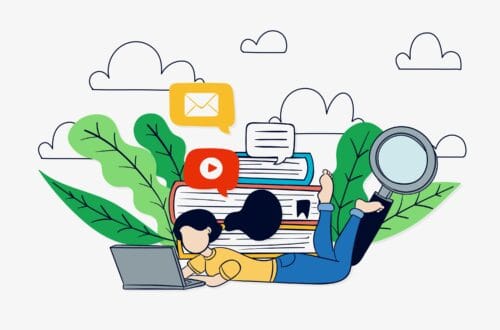
Why is Listening Important? Here are the 8 Reasons Why
There are numerous essential life skills, one of which is the ability to listen. Have you ever considered why listening holds such significance? Individuals continuously acquire communication skills throughout their lives, beginning in infancy. Babies learn to articulate by attentively listening to their parents and the environment, then attempting to reproduce the words they hear. As we grow older, we listen to others for various reasons.
Why is Listening Important in Communication?
Proficient listening skills are among the crucial life skills that everyone should possess. Have you ever pondered why listening holds such significance? From early childhood through adulthood, people continuously learn to communicate with one another. Babies acquire the ability to speak by actively listening to their surroundings and attempting to reproduce the words they hear. As we grow older, this skill becomes essential for various purposes.
Listening Purposes

Based on research conducted by Adler, Rosenfeld, and Proctor (2001), it has been found that adults spend approximately 70% of their time engaged in communication. Of this time, they dedicate about 45% to listening, 30% to speaking, 16% to reading, and 9% to writing.
Listening serves multiple purposes in effective communication, including understanding the message, acquiring information, taking action, evaluating and judging, appreciating or respecting others, showing sympathy and empathy, and building strong relationships. Active listening allows us to comprehend, learn, respond, assess, connect emotionally, and establish meaningful connections with others.
Listening plays a crucial role in effective communication by satisfying the innate desire to be heard and understood. It goes beyond mere hearing, requiring deliberate focus and engagement of the senses. Listening is the most basic and powerful way to establish genuine connections with others. To truly connect, we must listen attentively and sincerely.
“Perhaps the most important thing we ever give each other is our attention.”
Rachel Naomi Remen
The Impact of Interruption on Leadership: The Importance of Active Listening

In today’s society, there is a prevalent tendency among individuals to interrupt rather than engage in calm and attentive listening. This behavior can be observed in various settings, such as personal interactions and televised discussions, where people often interject with their own opinions or additional questions instead of actively listening to the speaker.
An illustrative example of this behavior occurred during the highly publicized American presidential debate on September 26, 2016. During this event, Donald Trump interrupted Hillary Clinton a staggering 51 times, while she interrupted him a comparatively lower 11 times. These numbers serve as a stark reminder that individuals often overlook the fundamental principle that effective leadership entails active and attentive listening. It is crucial to remember that to lead effectively, one must first genuinely listen.
“To meet at all, one must open one’s eyes to another; and there is no true conversation no matter how many words are spoken, unless the eye, unveiled and listening, opens itself to the other.”
Jessamyn West.
A Lesson in Effective Communication
Steve Jobs, a renowned entrepreneur, was not only successful but also known for his exceptional listening skills. According to Walter Isaacson’s biography of Jobs, at a dinner in 2002, he attentively listened to a Microsoft employee who suggested developing tablet computer software utilizing a stylus or pen.
This commitment to attentive engagement continued in 2007 when Jobs and Bill Gates were interviewed at the All Things Digital (D5) conference. Gates discussed the future of computing over the next five years, and Jobs listened intently. Following this exchange, the first generation of the iPhone, with its revolutionary multi-touch interface, was launched on June 29, 2007. Three years later, in 2010, the first iPad was unveiled. Jobs not only listened to words but also to ideas.
To witness this valuable interaction, watch the video below of Steve Jobs carefully listening to Bill Gates shared his idea for the iPad.
“A good listener will listen not only to what is being said but also to what is left unsaid or only partially said.”
Unknown
The Benefits of Listening
Active listening involves not only hearing the words someone says but also understanding their emotions, body language, problems, needs, and goals. Here are the benefits of active listening:
Building stronger relationships: Actively engaging with others helps foster deeper connections by demonstrating genuine care for their thoughts, feelings, and experiences.
Improved understanding: By attentively listening and seeking to comprehend others’ perspectives, you gain deeper insight into their emotions, challenges, and goals.
Enhanced problem-solving skills: Active listening allows you to gather comprehensive information and diverse perspectives, enabling you to identify effective solutions to problems.
Increased empathy and compassion: By genuinely understanding others, you develop a greater sense of empathy and compassion, strengthening relationships and promoting a more supportive environment.
Strengthened teamwork and collaboration: Active engagement promotes open communication, values everyone’s ideas and input, and contributes to effective teamwork and collaboration.
Conflict resolution: Through active listening, you can work towards resolving conflicts more effectively by understanding the underlying issues and seeking mutually beneficial solutions.
Personal growth: Listening attentively to others also facilitates personal growth and self-reflection, allowing you to gain new perspectives and learn from their experiences.
Improved professional success: Being a skilled listener can enhance your professional success by improving communication, building rapport, and earning the respect and trust of colleagues, clients, and superiors.
Consistently practicing active listening can help you experience these benefits in both your personal and professional relationships.
“When you talk, you are only repeating what you already know. But if you listen, you may learn something new.”
Dalai Lama
How to be a Good Listener?

- Listen – do not talk, comment, nor judge (except when the person asks you to speak after he/she finishes).
- Focus and relax.
- Smile to make the speaker comfortable when talking to you.
- Maintain eye contact.
- Free your mind and hands(no phone, please). Pay more attention to the speaker by not doing anything else except listening.
- Try to put your shoes in his or her shoes.
- Be patient and tolerant.
- Observe the other person’s gestures, facial expressions, and eye movements to see whether the other person listens to you.
“Listening is a magnetic and strange thing, a creative force. The friends who listen to us are the ones we move toward. When we are listened to, it creates us, makes us unfold and expand.”
Dr. Karl Menninger





